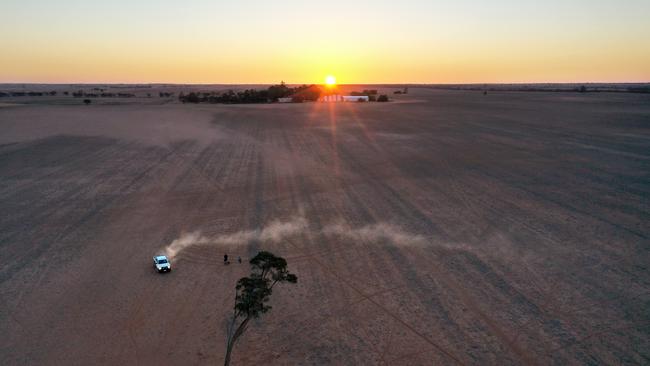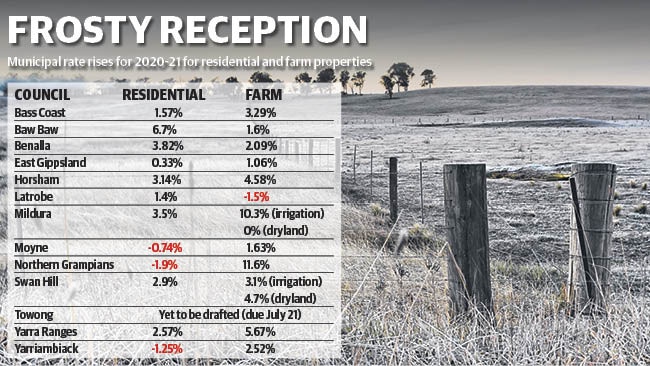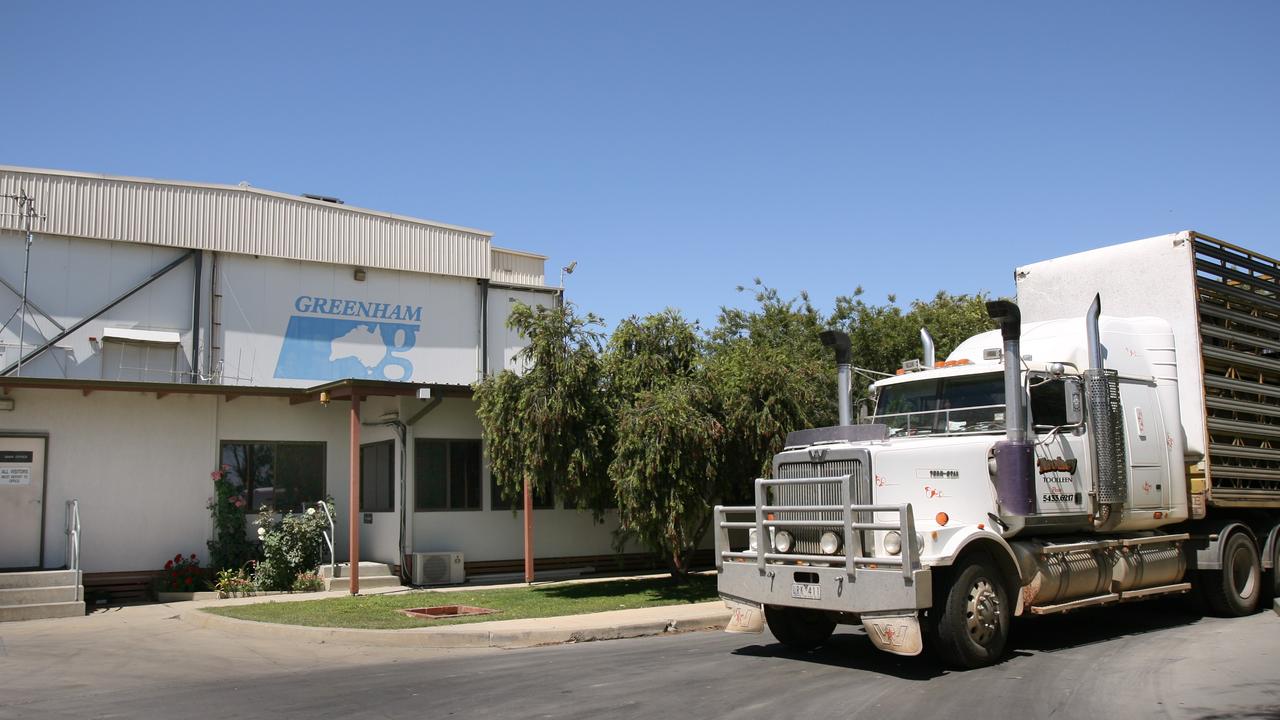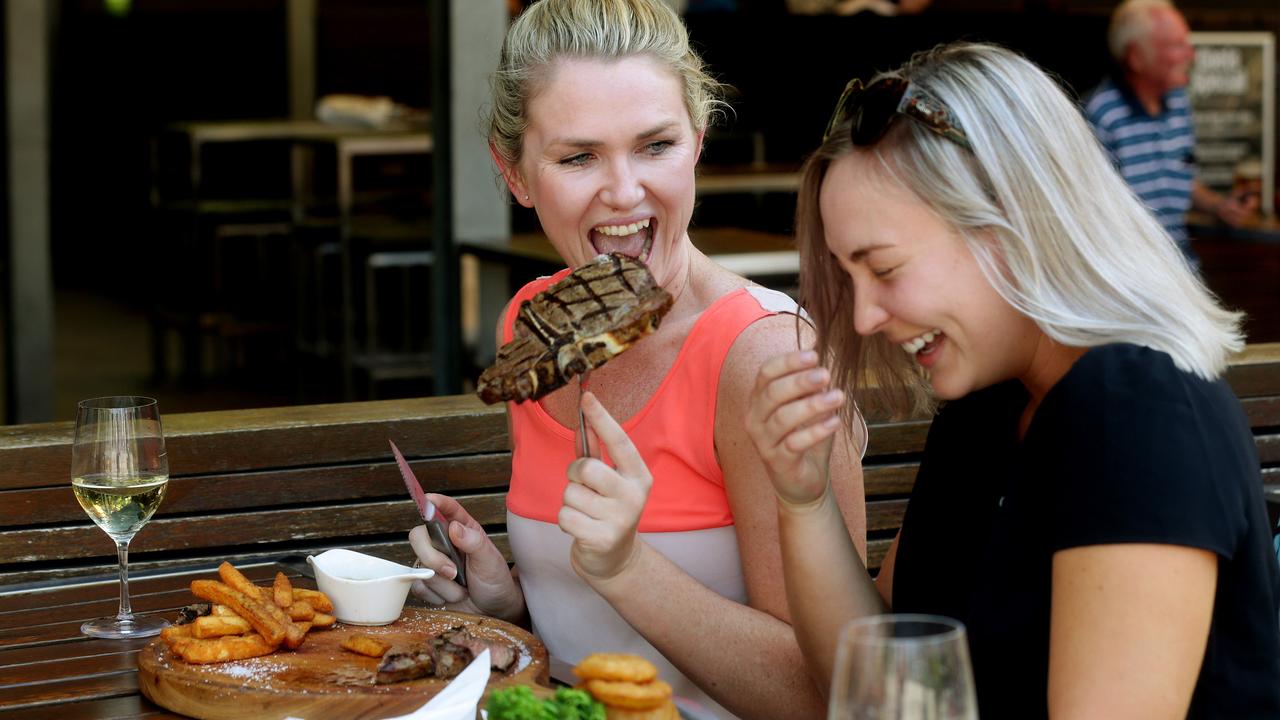Victorian farms shoulder burden as rates rise well above 2 per cent cap
A second wave of rate rises is about to hit Victorian farmers and many are well above the Andrews Government’s 2 per cent “Fair Go Rates” cap.

VICTORIAN farmers are about to be hit with a second wave of rate rises, with many well above the Andrews Government’s 2 per cent “Fair Go Rates” cap.
Last year The Weekly Times reported farmers were being loaded up with an ever greater proportion of the rate burden in 2019-20, on the back of soaring property values.
Yet, as the last of the state’s councils finalise their 2020-21 budgets, it appears that burden is about to grow.
Mildura Rural City Council plans to lift its irrigated farmers’ rates contribution by 10.3 per cent this financial year, on the back of a 14.4 per cent rise in farm values.
At the same time Mildura businesses are being granted a 0.6 per cent cut in their rates, despite commercial property values rising by 6.5 per cent.
“They should show some compassion and cut their own costs,” Sunraysia winegrape grower Steve Frasca said. “It’s just not fair one sector has to pay even more than others.”
Fellow wine-grape grower Lindsay McClelland said farm land was an easy target for councils.

Premier Daniel Andrews and his local government ministers have repeatedly stated they would “protect Victorians from unfair rates hikes, and that’s exactly what we’ve done”.
The cap limits any increase in the overall rate revenue collected by a Victorian council to the consumer price index, which has ranged from 2 to 2.5 per cent over the past four years.
But councils have been able to manipulate the system, offsetting above-cap hikes in farm rates by keeping their larger numbers of residential and commercial ratepayers’ contributions at or below the cap.
Victorian Nationals leader Peter Walsh said an Opposition Government would apply the cap to each rating category – farm, residential, industrial and commercial, limiting “big movements within a category”.
A key example of such a big movement is Victoria’s two Grampians’ shires, which are slashing residential rates, while hitting farmers with rate rises in excess of 10 per cent.
The Northern Grampians Shire Council’s draft budget proposes cutting its 6521 residential ratepayers’ contribution by 1.9 per cent, from $8 million down to $7.85 million, while cranking up its 5025 farmers contribution by 11.6 per cent, from $4.5 million to more than $5 million.
In the Southern Grampians the council plans to cut residential rates by 7.74 per cent, while raising its farm rate revenue rise by more than 10 per cent.
MORE
RATES CAP MET BY DEMANDING MORE FROM AG


